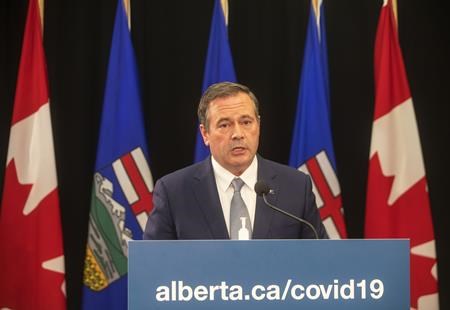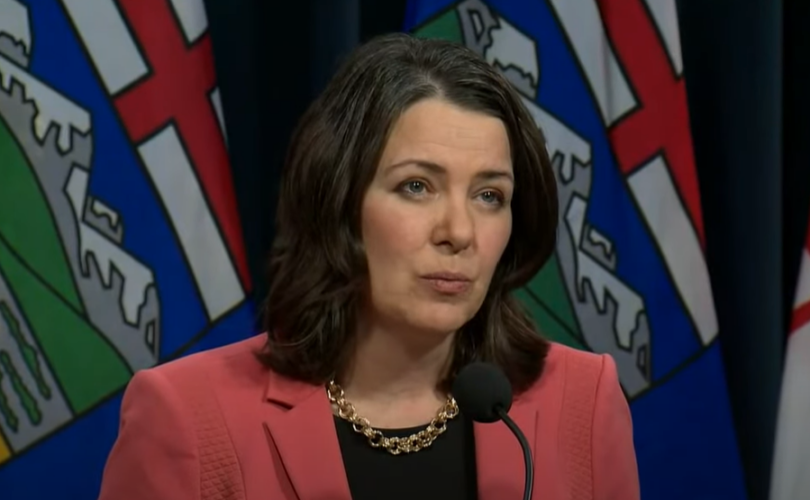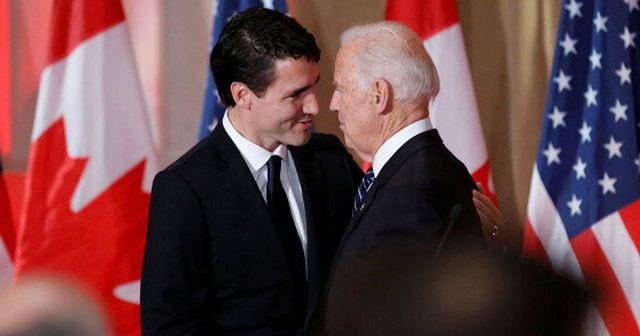Alberta
Vaccine Mandate ends in Alberta tonight at midnight!

From the Province of Alberta
Alberta takes steps to safely return to normal
Provincewide public health measures will be gradually lifted as the fifth wave of COVID-19 subsides and pressure on the health-care system eases.
Alberta will begin a careful and prudent plan to phase out public health measures, starting Feb. 8. The three-step approach will begin with lower-risk activities while maintaining protections for the health-care system, including continuing care facilities.
Beginning Feb. 8 at 11:59 p.m., Alberta will move to step one, which includes the removal of the Restrictions Exemption Program and capacity limits on venues under 500 capacity, including libraries and places of worship, and allows for food and beverage consumption in seated audience settings for large events and entertainment venues. Mandatory masking for children and youth in schools, and for youth aged 12 and under in any setting will end Feb. 13 at 11:59 p.m.
“The last two years have taken a significant toll on Albertans’ overall health, social and economic well-being. Now that we are through the worst of the fifth wave and have achieved high vaccination rates, it is time to shift to a balanced approach where we are able to live with COVID-19 and return to normal.”
“The vast majority of Albertans are now fully vaccinated. It’s a major factor that now allows us to ease restrictions, but we will do so only as conditions show that our health system’s capacity is recovering. Albertans can help make that possible by getting every vaccine dose they are eligible for.”
Subsequent steps will see changes to working from home, masking requirements, large venue capacity limits and indoor social gathering limits, with a final step removing isolation requirements and COVID-specific measures in continuing care settings. The lifting of restrictions will progress once pressures on the health-care system have sufficiently eased.
Step one
Effective Feb. 8 at 11:59 p.m.:
- Restrictions Exemption Program (REP) ends, along with most associated restrictions.
- Entertainment venues will continue to have some specific rules in place:
- Restrictions on sale of food and beverages and consumption while seated in audience settings will be removed.
- Restrictions on closing times, alcohol service, table capacity in restaurants and interactive activities will remain in force.
- For all businesses, venues and facilities – whether they were previously eligible for the REP or not – capacity limits are removed, except for:
- Facilities with capacity of 500 to 1,000, which will be limited to 500.
- Facilities with capacity of 1,000-plus, which will be limited to 50 per cent.
Effective at 11:59 p.m. on Feb. 13:
- Masks will no longer be required for all children and youth in schools.
- Masks will no longer be required in any setting for children aged 12 and under.
Step two
Effective March 1:
- Any remaining provincial school requirements (including cohorting) will be removed.
- Screening prior to youth activities will no longer be required.
- Capacity limits will be lifted for all venues.
- Limits on social gatherings will be removed.
- Provincial mask mandate will be removed.
- Mandatory work from home removed.
Step three
To be determined based on hospitalization rates continuing to trend downwards
- COVID-specific measures in continuing care will be removed.
- Mandatory isolation becomes a recommendation only.
Additional details on all restrictions and measures in place will be released prior to each step at alberta.ca/CovidMeasures.
Alberta
Alberta government should eliminate corporate welfare to generate benefits for Albertans

From the Fraser Institute
By Spencer Gudewill and Tegan Hill
Last November, Premier Danielle Smith announced that her government will give up to $1.8 billion in subsidies to Dow Chemicals, which plans to expand a petrochemical project northeast of Edmonton. In other words, $1.8 billion in corporate welfare.
And this is just one example of corporate welfare paid for by Albertans.
According to a recent study published by the Fraser Institute, from 2007 to 2021, the latest year of available data, the Alberta government spent $31.0 billion (inflation-adjusted) on subsidies (a.k.a. corporate welfare) to select firms and businesses, purportedly to help Albertans. And this number excludes other forms of government handouts such as loan guarantees, direct investment and regulatory or tax privileges for particular firms and industries. So the total cost of corporate welfare in Alberta is likely much higher.
Why should Albertans care?
First off, there’s little evidence that corporate welfare generates widespread economic growth or jobs. In fact, evidence suggests the contrary—that subsidies result in a net loss to the economy by shifting resources to less productive sectors or locations (what economists call the “substitution effect”) and/or by keeping businesses alive that are otherwise economically unviable (i.e. “zombie companies”). This misallocation of resources leads to a less efficient, less productive and less prosperous Alberta.
And there are other costs to corporate welfare.
For example, between 2007 and 2019 (the latest year of pre-COVID data), every year on average the Alberta government spent 35 cents (out of every dollar of business income tax revenue it collected) on corporate welfare. Given that workers bear the burden of more than half of any business income tax indirectly through lower wages, if the government reduced business income taxes rather than spend money on corporate welfare, workers could benefit.
Moreover, Premier Smith failed in last month’s provincial budget to provide promised personal income tax relief and create a lower tax bracket for incomes below $60,000 to provide $760 in annual savings for Albertans (on average). But in 2019, after adjusting for inflation, the Alberta government spent $2.4 billion on corporate welfare—equivalent to $1,034 per tax filer. Clearly, instead of subsidizing select businesses, the Smith government could have kept its promise to lower personal income taxes.
Finally, there’s the Heritage Fund, which the Alberta government created almost 50 years ago to save a share of the province’s resource wealth for the future.
In her 2024 budget, Premier Smith earmarked $2.0 billion for the Heritage Fund this fiscal year—almost the exact amount spent on corporate welfare each year (on average) between 2007 and 2019. Put another way, the Alberta government could save twice as much in the Heritage Fund in 2024/25 if it ended corporate welfare, which would help Premier Smith keep her promise to build up the Heritage Fund to between $250 billion and $400 billion by 2050.
By eliminating corporate welfare, the Smith government can create fiscal room to reduce personal and business income taxes, or save more in the Heritage Fund. Any of these options will benefit Albertans far more than wasteful billion-dollar subsidies to favoured firms.
Authors:
Alberta
Official statement from Premier Danielle Smith and Energy Minister Brian Jean on the start-up of the Trans Mountain Pipeline

-

 Addictions2 days ago
Addictions2 days agoCity of Toronto asks Trudeau gov’t to decriminalize hard drugs despite policy’s failure in BC
-

 Business2 days ago
Business2 days agoWhen politicians gamble, taxpayers lose
-

 Automotive2 days ago
Automotive2 days agoVehicle monitoring software could soon use ‘kill switch’ under the guise of ‘safety’
-

 National1 day ago
National1 day agoBritish Columbia quickly shoots down bill to ban men from competing in women’s sports
-

 Economy1 day ago
Economy1 day agoOttawa’s homebuilding plans might discourage much-needed business investment
-

 Alberta1 day ago
Alberta1 day agoAlberta government should eliminate corporate welfare to generate benefits for Albertans
-

 Bruce Dowbiggin2 days ago
Bruce Dowbiggin2 days agoIt Gets Late Early These Days: Time To Bounce Biden & Trudeau?
-

 Opinion1 day ago
Opinion1 day agoClimate Murder? Media Picks Up Novel Legal Theory Suggesting Big Oil Is Homicidal










